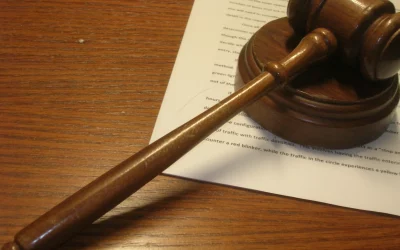By Fulvio Biondi What are Threats to Kill? "Threats to Kill" is found under s20 of the Crimes Act 1958 and is stated as follows: A person who, without lawful excuse, makes to another person a threat to kill that other person or any other person — (a) intending that...
Jay & Co
Information For Self Represented Individuals
Information For Self Represented Individuals If you are going to court you may already have thought about whether you want to represent yourself or whether you will engage in professional legal representation. Let’s start off by discussing the advantages of self...
Impoundment, immobilisation and forfeiture of your vehicle
If you are convicted of certain serious driving offences then the police or court may impound, immobilise or forfeit your car. Depending on the type of offence and you circumstances you will be placed into either one of the tiers of offences that have motor vehicle...
The Sentencing Act 1991 (Vic) & How It Applies To You
When you are charged with an offence and plead guilty you receive a penalty contained in the Sentencing Act 1991 (Vic) ('sentencing act') The purpose of the sentencing act is so that there is transparency in sentencing offenders. So that there are fair procedures in...
Committal Proceedings
Committal hearings are only conducted in particular circumstances that are governed by section 96 of the Criminal Procedure Act. If you have been given notice that a committal hearing will be conducted or are unsure whether this process applies to you, contact your...
S 15 Major Crime (Investigative Powers) Act, Witness Summons
The purpose of the Major Crime (Investigative Powers) Act 2004 (MCIP Act) is to structure and provide a system for properly authorising and oversight of coercive powers that can be used to investigate and prosecute organised crime offences and to target, specifically,...
Suppression Orders
The current laws as they stand, pursuant to Section 4 of the Open Courts Act 2013 (‘Open Courts Act’), support the presumption of open justice and the disclosure of information in our legal system. However a court can make an order that restricts or prohibits the...
Family Law – Parenting/Child Access Orders
FAMILY LAW – PARENTING/CHILD ACCESS ORDERS To many of you with children, the pertinent question that arises with a separation in a marriage or de-facto, is who the child will go to; and whether you as a parent are entitled to them solely. The Family Law Act 1975 deals...
Family Law – Parenting or Child Access Orders
To many of you with children, the pertinent question that arises with a separation in a marriage or de-facto, is who the child will go to; and whether you as a parent are entitled to them solely. The Family Law Act 1975 deals with this through parenting or child...
Employment Law – Unfair & Unlawful Dismissal
EMPLOYMENT LAW – UNFAIR & UNLAWFUL DISMISSAL Employment law is currently governed by the Fair Work Australia Tribunal. The governing legislation is the Fair Work Act 2009. Provisions under the fair work act explain Unfair Dismissal, while the separate civil action...








